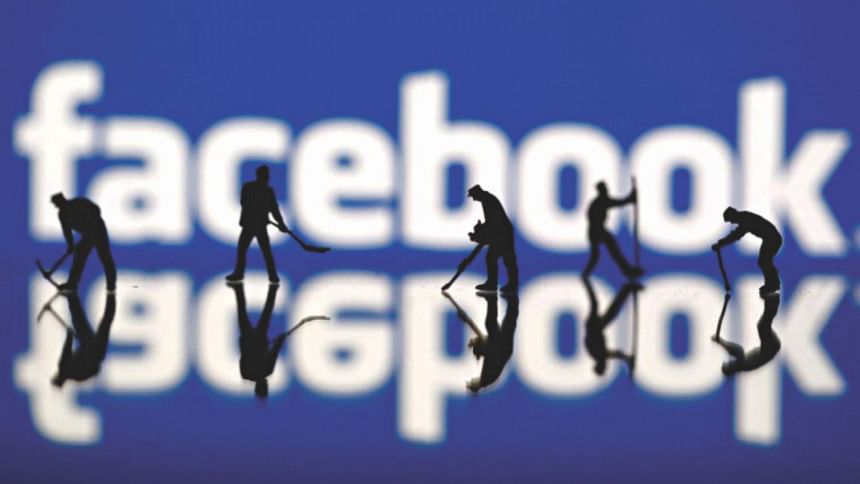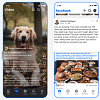Facebook, please change your business model!

Facebook is one of the largest technology companies in the world. However, the year 2018 was not the best one for Facebook, although its revenue jumped by 38 percent to USD 55 billion last year, boosting its market value at USD 462 billion. The problem is how Facebook collects information on its users and then goes about sharing it with paying customers. Facebook has repeatedly found itself in trouble last year for its practices which are now known to be "spying and lying".
The state of New York is now bearing down on Facebook and investigating the company on different aspects of its business dealings. This follows a news report that eleven companies regularly send personal health information data about users of apps on Facebook. For example, six of the top 15 health-and-fitness apps in Apple's App Store were sending personal data to Facebook. New York Governor Andrew Cuomo described the data sharing arrangement between Facebook and the app companies as "an outrageous abuse of privacy".
Last year, Facebook's CEO Mark Zuckerberg was called before the US Congress to explain its failures during the 2016 US presidential election and for "selling ads to Russian propagandists and allowing fake news to flourish on the platform." While he promised to make serious efforts to protect user data, make Facebook's advertising and marketing policies more transparent, and prevent bad actors from using the platform to spread misinformation in the future, the social media giant is in trouble again. A user group has filed a complaint recently with the Federal Trade Commission for providing "misleading information on privacy policies to convince people to give out personal health information." In other words, Facebook lied to users who joined a patient support group with the assurance that it would keep personal and health information safe, secure, and confidential, and then sold the information to external entities who used the information to sell products to this vulnerable group. Once it became aware, Facebook then allegedly failed to report breaches of that data and ignored requests to fix the problem.
Ironically, only a month ago, Zuckerberg wrote an op-ed in the Wall Street Journal (WSJ) to reassure the American public that its business practices are above board. In a piece entitled "The Facts About Facebook" published on January 24, 2019, he declared, "We need your information for operation and security, but you control whether we use it for advertising." And that is a blatant lie!
Readers using Facebook are aware that when you sign up for a Facebook account, you're required to share name, gender, date of birth, and email or mobile number. After you join, Facebook gathers and stores more personal data, what you share and add, and your likes and clicks which can be used to target you with ads. Facebook also tracks and stores data about the ads you check out, personal information you add to your profile including schools, maiden name, hometown and current city, employment, other social networks like political clubs, groups, and alumni associations, each IP address you login from…and much, much more. WSJ found that popular apps were using Facebook's software development kit or SDK to send the social network "intensely personal data".
In light of these revelations, New York's regulator (Financial Services Department) is ramping up its investigation of how Facebook gathered sensitive personal information from popular smartphone applications after the discovery that health and fitness apps were sending the social-media giant data, including users' body weight and menstrual cycles.
And we all know what it does with it! It sells the information it collects from its users to the 7 million paying advertisers, "who are Facebook's actual customers", according to WSJ's Laura Forman. The bulk of Facebook's revenue, actually 85 percent, is derived from digital advertising. Unfortunately, the business model is based on archiving user data or "history" which can be used to direct commercials, information, and promotions to a "target audience". According to Forman, Facebook is now struggling to fine-tune this business model in light of the "sea of privacy issues that haunted Facebook in 2018".
Facebook's Chief Operating Officer Sheryl Sandberg promised on February 26 at an investor conference that the company will address privacy concerns and find a balance between monetising personal information and protecting privacy. "Targeted advertising and privacy are not at odds", she said. Zuckerberg has repeatedly defended Facebook's use of the data and postings of the 2.2 billion users of its platform in the face of accusations that it was sharing users' personal messages with large technology companies like Netflix and Spotify without their permission even after it tightened its privacy rules in 2014-15. Facebook has denied this allegation.
Unlike the US, many other countries have already tightened their privacy and personal data protection rules. The European Union passed the General Data Protection Regulation (GDPR) on May 25, 2018. This new law requires the three million European businesses that advertise on Facebook—and "offer goods or services to, or monitor the behaviour of, EU data subjects"—to be more transparent regarding the kinds of personal data they collect and what they do with it.
Furthermore, GDPR requires that users or "prospects must give their expressed consent in order for you to harvest and utilize that data. No tomfoolery. No shenanigans. Only the utmost transparency," Allen Finn warns on The WordStream Blog.
On February 28, Ireland's privacy regulator, the Data Protection Commission, said that it opened 10 investigations into whether Facebook or its subsidiaries violated GDPR. India is borrowing a page from China's books and its "National Champion" policy will unveil efforts to further tighten restrictions on Amazon.com Inc., Walmart Inc. Facebook Inc. and other foreign firms that have come to dominate the country's budding internet economy, according to Fortune magazine.
What lesson should Facebook draw from its troubles? Jessica Powell, an author and former vice president at Google, advises that Facebook needs to learn from the experience of big oil, chemical manufacturers, tobacco companies, and politicians. "It is a company, and like most companies, driven first and foremost by profit. The good companies are the ones who acknowledge this but are equally aware of their responsibility and their need to act ethically and with transparency. The bad companies are the ones who believe they are something else—who tell themselves and the world that they are one thing, when in fact they are something very different."
For users of Facebook, my advice is: check the privacy settings for each of the popular social media apps you use, and the user groups you belong to. Ask what information these groups share! And remember, whether you live in Bangladesh or China, this is an age of what Shoshana Zuboff calls "surveillance capitalism". This new global architecture works with interlinked enterprises to affect, and profit from, behaviour modification in the twenty-first century.
Dr Abdullah Shibli is an economist and works in information technology. He is Senior Research Fellow, International Sustainable Development Institute (ISDI), a think-tank in Boston, USA.










Comments